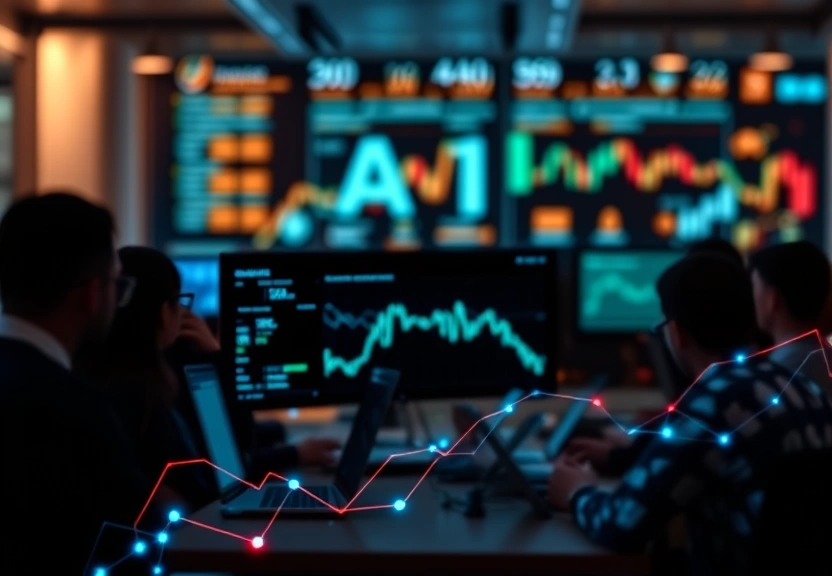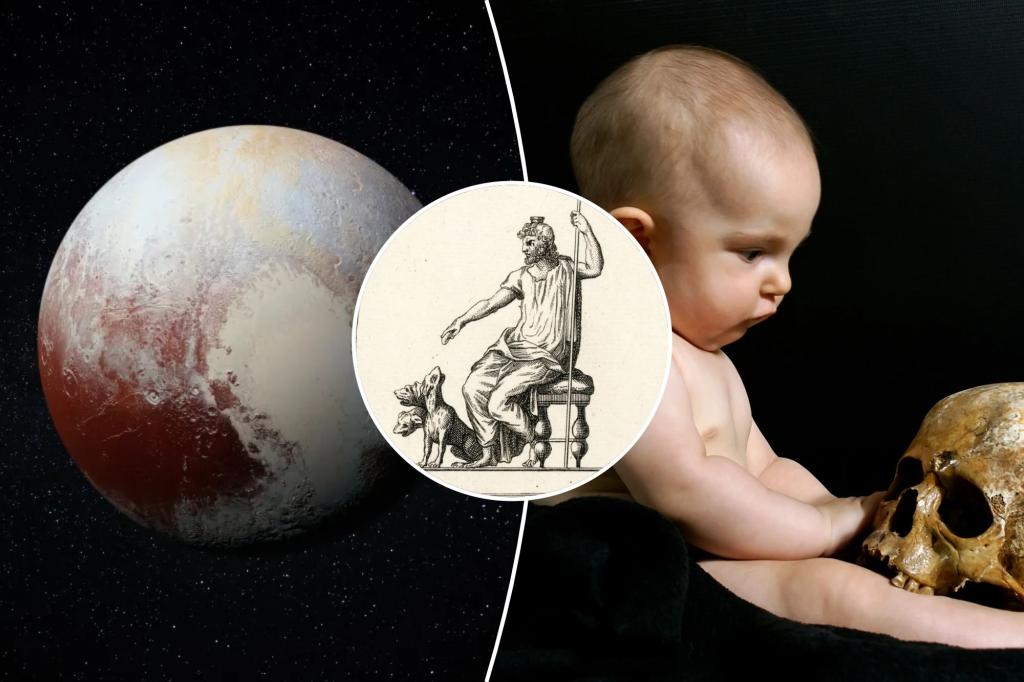Embrace Technology, Preserve Humanity: Key Insights from FMAS:25 on AI’s Role in Trading
The Finance Magnates Africa Summit 2025 (FMAS:25) was a pivotal event that brought together industry leaders, financial analysts, and trading enthusiasts to discuss the future of trading in an increasingly volatile market landscape. Among the highlights of the summit was a compelling presentation by financial analyst Mj Givens Kgasi, who focused on the intersection of technology and humanity in trading, particularly in the context of Contract for Difference (CFD) trading. In a world where artificial intelligence (AI) and advanced trading tools are becoming ubiquitous, Kgasi’s insights reminded attendees that while technology can enhance trading strategies, the human element remains irreplaceable.

Kgasi’s session, titled “The Future of CFD Trading in 2025: Key Trends,” was not just a forecast of market trends but a call to action for brokers and individual traders alike. With his extensive experience in market cycles, Kgasi asserted that 2025 would bring unique challenges driven by institutional forces, persistent inflation, and geopolitical tensions. He emphasized the necessity of preparedness in navigating the turbulent waters of trading, particularly for a new generation of retail traders who may lack the necessary education and resources. This article delves into the key insights from Kgasi’s presentation, exploring the implications of technology in trading, the risks faced by retail traders, and the ethical responsibilities of brokers.
The Current Landscape of CFD Trading
CFD trading has gained significant traction over the past decade, offering traders the opportunity to profit from market fluctuations without owning the underlying asset. However, the current landscape presents challenges that traders must navigate with caution. As Kgasi pointed out, volatility is here to stay, and the unpredictability of the market can be both an opportunity and a risk.
Understanding Market Volatility
Market volatility refers to the degree of variation in trading prices over a certain period. It is a crucial factor for traders, especially those utilizing CFDs, as it influences potential profits and losses. Factors contributing to market volatility include:
- Economic indicators such as inflation rates and employment data.
- Geopolitical events that can create uncertainty in the markets.
- Market sentiment and investor behavior, including fear and greed.
In 2025, Kgasi anticipates that these factors will become more pronounced, necessitating a shift in how traders prepare for and respond to market changes. The ability to adapt quickly and make informed decisions is more critical than ever.
The Rise of Retail Trading
One of the significant trends highlighted by Kgasi is the increase in retail trading, particularly in regions like South Africa, where economic challenges have driven many individuals to seek alternative income streams. With a staggering 32% unemployment rate, many South Africans have turned to trading out of necessity rather than ambition, which presents both opportunities and risks.
Risks Faced by Retail Traders
The influx of inexperienced traders into the market raises concerns about their preparedness and understanding of trading fundamentals. According to Kgasi, a shocking 82% of South African traders have reported being scammed, underscoring the need for greater education and mentorship within the trading community.
Key risks faced by retail traders include:
- Lack of proper education and training in trading strategies.
- Overreliance on impulsive decision-making driven by desperation.
- Exposure to fraudulent schemes and unethical brokers.
Kgasi urged brokers and trading firms to step up and provide structured mentorship programs to equip new traders with the knowledge and skills necessary to succeed in the market.
AI in Trading: A Double-Edged Sword
As technology continues to evolve, AI tools are increasingly being integrated into trading strategies. Kgasi emphasized the importance of leveraging technology while maintaining a critical perspective on its limitations. While AI can enhance trading performance through improved pattern recognition and real-time analytics, it is not a substitute for human judgment.
Utilizing AI Responsibly
During his live demonstration, Kgasi illustrated the capabilities of AI by using ChatGPT to generate gold trading signals. However, he cautioned the audience that AI does not provide “magic answers.” Traders must possess the knowledge to interpret AI outputs effectively and make sound trading decisions.
To utilize AI responsibly in trading, consider the following approaches:
- Integrate AI tools to support decision-making rather than replace it.
- Develop a solid understanding of the market and trading strategies before relying on technology.
- Use AI-generated insights as one of many inputs in a comprehensive trading strategy.
Ethics in the Trading Industry
Kgasi’s presentation also addressed the pressing need for ethical practices within the trading industry. He called on brokers and traders to recognize their responsibilities regarding tax compliance, regulatory adherence, and maintaining a positive reputation in the market. The integrity of the industry is at risk if unethical practices are allowed to persist.
The Importance of Transparency and Professionalism
To restore trust in the trading ecosystem, Kgasi outlined the following principles for ethical trading:
- Prioritize transparency in all dealings with clients and stakeholders.
- Maintain professionalism by adhering to regulations and industry standards.
- Foster a culture of accountability and self-regulation among brokers and traders.
Kgasi’s message was clear: the future of CFD trading hinges not only on technological advancements but also on the ethical standards upheld by industry participants. As he poignantly stated, “Integrity is what you do when no one’s watching.”
A Roadmap for the Future
In conclusion, Kgasi left the FMAS:25 audience with a compelling roadmap for navigating the future of CFD trading. His key insights centered around three primary themes:
- Combine preparation with purpose: Traders must equip themselves with knowledge and strategies to navigate volatility.
- Embrace technology without surrendering judgment: While AI tools can enhance trading, they should complement, not replace, human insight.
- Champion transparency as a competitive advantage: Ethical practices and accountability will set brokers apart in a crowded marketplace.
As the trading landscape continues to evolve, embracing technology while preserving the human element will be essential for success. By prioritizing education, ethical standards, and responsible technology use, both traders and brokers can contribute to a healthier trading environment.
FAQ
1. What is CFD trading?
CFD (Contract for Difference) trading allows traders to speculate on the price movements of various assets without actually owning the underlying asset. It enables traders to profit from both rising and falling markets.
2. What are the risks associated with retail trading?
Risks include lack of proper education, impulsive decision-making driven by necessity, and exposure to scams or unethical brokers.
3. How can AI be used effectively in trading?
AI can enhance trading strategies through pattern recognition and real-time analytics. However, traders must also possess the knowledge to interpret AI outputs effectively.
4. Why is ethics important in the trading industry?
Ethics promote transparency, accountability, and professionalism, which are essential for maintaining trust and credibility in the trading ecosystem.
5. What should brokers do to support new traders?
Brokers should provide structured mentorship programs, educational resources, and tools that empower new traders to develop their skills and knowledge.
Conclusion
The FMAS:25 presentation by Mj Givens Kgasi serves as a crucial reminder of the delicate balance between embracing technology and preserving the human element in trading. As the market landscape continues to evolve, traders and brokers must adapt by prioritizing education, ethical practices, and responsible technology use. By doing so, they can navigate the challenges of 2025 and beyond, ultimately contributing to a more robust and trustworthy trading environment.
📰 Original Source
Este artigo foi baseado em informações de: https://www.financemagnates.com/forex/use-tech-but-keep-the-human-element-octa-analyst-at-fmas25-highlights-ai-limits-in-trading/


